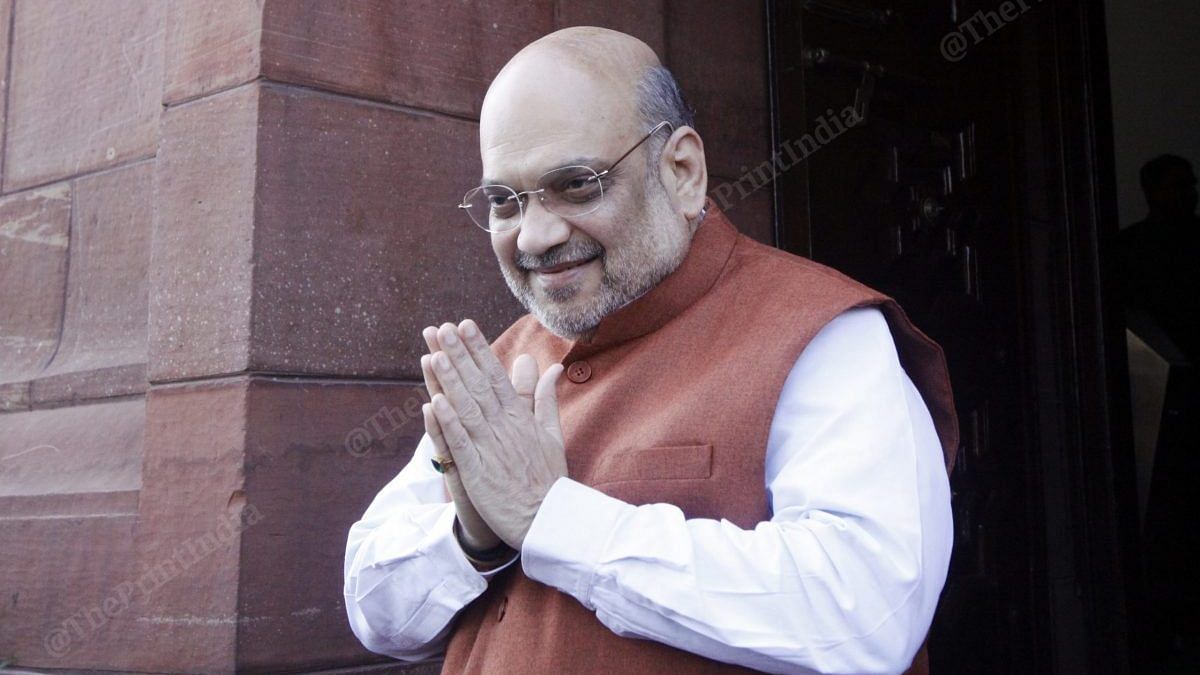India’s judicial landscape has seen an increasing influence of judicial activism, where courts intervene in legislative and executive matters. This phenomenon has sparked a significant debate in political and legal circles, with Union Home Minister Amit Shah recently addressing concerns over the growing interference of the judiciary in laws passed by Parliament.
Shah’s comments reflect a broader call for careful legislative drafting to mitigate judicial challenges, while also advocating for reforms to limit judicial overreach. In a candid discussion, Shah cited examples such as the abrogation of Article 370 and the Electoral Bonds Act to illustrate the importance of these reforms.
Amit Shah’s remarks come in the context of increasing judicial interventions in matters that many believe fall under the purview of the legislature. Judicial activism, particularly by the Supreme Court, has led to several high-profile cases where laws passed by Parliament have been challenged or scrutinized. Shah’s concerns point to the delicate balance of powers between the judiciary, legislature, and executive branches, a balance that he argues has been tipped too far toward judicial dominance.
One of the most prominent examples of this trend is the Electoral Bonds Act, which has faced judicial scrutiny despite being passed by Parliament to bring transparency to political donations. Critics of the Act have raised concerns about its potential for misuse and lack of transparency, leading to its challenge in court. Shah highlighted that such interventions challenge the authority of elected representatives and disrupt the smooth functioning of legislative processes.
Reforms to Limit Judicial Overreach
In light of these challenges, Amit Shah has suggested the government is contemplating measures to curtail judicial activism, particularly regarding the functioning of the collegium system, which governs judicial appointments in India. Shah emphasized that while the judiciary’s independence must be respected, there is a need to redefine its role to prevent undue interference in laws passed by Parliament.
Shah’s statements have fueled speculation about new legislation that could restrict the judiciary’s power to intervene in legislative matters. He advocates for a clearer separation of powers, with the judiciary focusing on upholding the Constitution without encroaching upon the domain of lawmaking. These reforms would aim to strike a balance where the judiciary’s role remains one of oversight rather than active interference in the legislative process.
Lessons from Article 370’s Abrogation
Amit Shah underscored the legal challenges surrounding the abrogation of Article 370, which granted special status to Jammu and Kashmir. According to Shah, the meticulous drafting of the provisions surrounding the abrogation helped shield it from Supreme Court intervention. The government’s strategic legal foresight in ensuring that no constitutional provisions were violated during the abrogation process is seen as a model for future legislative actions.
The abrogation of Article 370 was a significant political and legal victory for the government, achieved despite strong opposition from various political parties. By carefully navigating parliamentary dynamics and meticulously drafting the legal provisions, the government managed to prevent judicial challenges that could have reversed the decision. Shah’s comments highlight how legislative foresight can be a powerful tool in ensuring the permanence of key policy decisions, even in the face of potential judicial scrutiny.

Concerns Over Judicial Transparency and Accountability
Amit Shah also touched upon broader concerns about the transparency of the judiciary, particularly regarding the asset declarations of Supreme Court judges. Currently, judges are required to submit their asset details only to the Chief Justice of India, and this information is not accessible to the public. Shah raised concerns about the lack of accountability and transparency in this process, arguing that the opacity surrounding judges’ assets can undermine public trust in the judiciary.
The issue of transparency in judicial appointments and conduct has been a longstanding concern. The National Judicial Appointments Commission (NJAC), which aimed to reform the appointment process, was struck down by the Supreme Court, leading to further questions about the judiciary’s reluctance to submit to external oversight. Shah’s comments suggest that reforms in this area remain on the government’s agenda, intending to increase accountability and restore public confidence in the judiciary.
Electoral Bonds and Political Funding Transparency
The discussion also extended to the Electoral Bonds system, a controversial policy introduced by the government to regulate political donations. Shah defended the system, arguing that it brings transparency to political funding, yet he acknowledged the ongoing judicial and political challenges it faces. Opposition parties have been united in challenging the Electoral Bonds Act, leading to a tense political climate and the likelihood of further judicial scrutiny.
Shah’s emphasis on drafting laws that can withstand judicial intervention reflects a broader strategy to minimize legal disputes over key policies. The Electoral Bonds Act, much like Article 370’s abrogation, represents a test case for the government’s ability to push through contentious legislation while preventing judicial challenges.
The Way Forward: Judicial and Legislative Reforms
Amit Shah’s call for judicial reform goes beyond just limiting judicial activism. He pointed to discussions surrounding the Uniform Civil Code (UCC), which is currently being tested in Uttarakhand. The UCC is expected to face significant legal challenges in the Supreme Court, and Shah’s remarks suggest that the government is preparing for a long legal battle. By emphasizing the need for judicial reforms, including revisiting the NJAC and other measures, Shah’s statements indicate the government’s intent to address what it perceives as an imbalance in the separation of powers.
In conclusion, Amit Shah’s concerns over judicial activism and the Supreme Court’s role in legislative matters highlight the need for a recalibration of the judiciary’s influence. As the government contemplates measures to limit judicial overreach, the ongoing debate will likely shape the future of India’s legal and political landscape. Through careful drafting of laws and reforms to ensure judicial accountability, Shah’s vision points to a clearer separation of powers, where Parliament’s authority remains paramount while the judiciary’s independence is maintained.






